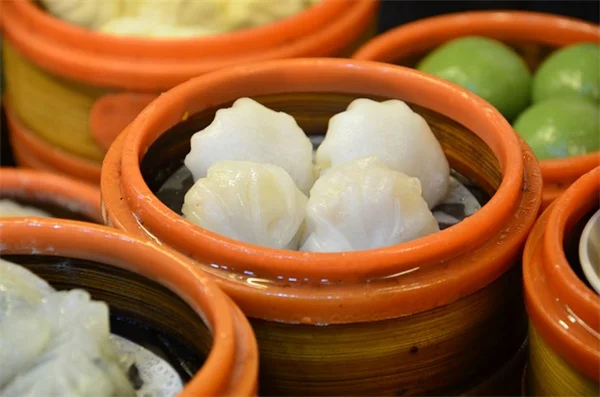Tai Chi Beats Aerobics for Lowering Blood Pressure: New Study Reveals
Advertisement
Can tai chi really lower blood pressure better than aerobic exercise? The answer is yes! A groundbreaking new study published in JAMA Network Open shows that practicing tai chi was more effective than traditional aerobic exercise at reducing blood pressure in prehypertension patients. After one year, the tai chi group saw their systolic pressure drop by 7.01 mm Hg compared to just 4.61 mm Hg in the aerobic group - that's nearly 50% better results!Here's why this matters for you: If you're among the millions of Americans with slightly elevated blood pressure (120-129/80-89 mm Hg), adding tai chi to your routine could be a game-changer. This ancient practice combines gentle movement with meditation to reduce stress, improve circulation, and promote heart health - all key factors in managing blood pressure naturally. And the best part? You don't need to break a sweat or buy expensive equipment to reap these benefits.
- 1、Why Tai Chi Might Be Your New Blood Pressure Best Friend
- 2、The Mind-Body Magic of Tai Chi
- 3、Your Blood Pressure Toolkit: Beyond Tai Chi
- 4、Making It Work in Real Life
- 5、The Science Behind Tai Chi's Blood Pressure Benefits
- 6、Tai Chi vs. Other Stress-Busters
- 7、Making Tai Chi Work for You
- 8、The Long Game: Why Consistency Wins
- 9、FAQs
Why Tai Chi Might Be Your New Blood Pressure Best Friend
The Surprising Winner in Blood Pressure Control
Guess what? That slow-motion martial art your grandma does in the park might be more powerful than your treadmill sessions for controlling blood pressure. A groundbreaking study published in JAMA Network Open found tai chi beat aerobic exercise at lowering blood pressure in prehypertension patients.
Here's the kicker: After one year, the tai chi group saw their systolic pressure drop by 7.01 mm Hg compared to just 4.61 mm Hg in the aerobic group. That's like getting an extra 2.4 mm Hg benefit just by switching your workout style! The study followed 342 adults aged 18-65 for 2.5 years, making these results pretty darn reliable.
Understanding Your Blood Pressure Numbers
Before we dive deeper, let's make sure we're all speaking the same language about blood pressure. Your reading comes as two numbers:
| Category | Systolic (Top Number) | Diastolic (Bottom Number) |
|---|---|---|
| Normal | <120 mm Hg | <80 mm Hg |
| Prehypertension | 120-129 mm Hg | 80-89 mm Hg |
| High (Hypertension) | ≥140 mm Hg | ≥90 mm Hg |
Now here's a question that might surprise you: Why does tai chi work so well for blood pressure when it barely makes you break a sweat? The secret lies in its unique combination of movement, breathing, and meditation. Unlike aerobics that mainly work your body, tai chi gives your stress levels a knockout punch too - and stress is a major blood pressure villain.
The Mind-Body Magic of Tai Chi
 Photos provided by pixabay
Photos provided by pixabay
More Than Just Fancy Arm Waves
Tai chi isn't just exercise - it's like getting a massage for your nervous system. As Joe Petreycik, a physiotherapist at Bridgeport Hospital, puts it: "The slow, purposeful movements combined with meditative breathing create a perfect storm for stress reduction." And since stress hormones can send your blood pressure soaring, this explains why tai chi packs such a powerful punch.
Let me paint you a picture: Imagine doing a workout where you never gasp for air, never feel that "I want to die" burn, yet still get serious health benefits. That's tai chi in a nutshell. Dr. Daibes describes it as "a peaceful dance that's good for the soul" - one that happens to come with bonus points for your cardiovascular system.
Unexpected Perks You'll Love
Beyond blood pressure, regular tai chi practice can:
- Turn you into a zen master (okay, maybe just less stressed)
- Give you better balance than your 10-year-old nephew
- Help you sleep like you're back in kindergarten
- Keep your joints happier than a dog with a new chew toy
Here's another head-scratcher: How can something so gentle be so effective? The answer lies in consistency. Because tai chi is so accessible - no special equipment, easy on the joints - people actually stick with it long enough to see real results. Unlike that gym membership you haven't used since January.
Your Blood Pressure Toolkit: Beyond Tai Chi
Exercise Options That Pack a Punch
While tai chi stole the spotlight in this study, let's not throw the baby out with the bathwater. Aerobic exercise still deserves a spot in your routine. Here's how different activities stack up:
| Activity | Blood Pressure Benefit | Bonus Perks |
|---|---|---|
| Tai Chi | Best for sustained lowering | Stress relief, balance, joint health |
| Brisk Walking | Good gradual improvement | Easy to start, no equipment needed |
| Swimming | Excellent full-body impact | Joint-friendly, builds endurance |
| HIIT | Fast results (with doctor's OK) | Time-efficient, boosts metabolism |
 Photos provided by pixabay
Photos provided by pixabay
More Than Just Fancy Arm Waves
You can't out-exercise a bad diet, as they say. For blood pressure control, what you put on your plate matters as much as your workout routine. The Mediterranean diet gets gold stars from experts for its focus on:
Plant-powered goodness: We're talking colorful fruits and veggies at every meal, whole grains that actually taste good, and nuts that make you feel fancy. Plus, olive oil that makes everything better - even your blood pressure.
Here's a pro tip: Next time you're at the grocery store, play the "shop the rainbow" game. The more colors in your cart, the more blood-pressure-friendly nutrients you're getting. Bonus points if you can name all the colors in Spanish while you're at it.
Making It Work in Real Life
Small Changes, Big Impact
Let's be real - no one's expecting you to suddenly become a tai chi master overnight. The beauty of this approach is that small, consistent changes add up. Try starting with just 10 minutes of tai chi in the morning (YouTube has great beginner videos), then build from there.
Remember that blood pressure responds to overall lifestyle, not just one thing. As Dr. Daibes notes, "It's about finding the right combination that works for you - whether that's tai chi plus walking, meditation plus swimming, or whatever gets you moving and smiling."
When to Call in the Pros
While lifestyle changes work wonders for many, some folks need extra help. If your numbers stay stubbornly high despite your best efforts, don't hesitate to talk to your doctor about medication options. There's no shame in the pharmaceutical game when it comes to protecting your heart health.
The bottom line? Whether you choose tai chi, aerobics, or a mix of both, the most important thing is that you keep showing up for your health. Your heart will thank you - today, tomorrow, and for all the tomorrows after that.
The Science Behind Tai Chi's Blood Pressure Benefits
 Photos provided by pixabay
Photos provided by pixabay
More Than Just Fancy Arm Waves
Ever wonder why tai chi makes you feel so zen? It's not just in your head - there's actual science at work here. When you practice those slow, flowing movements, you're actually rewiring your nervous system to be more chill. The parasympathetic nervous system (that's your "rest and digest" mode) kicks into high gear, telling your heart to take it easy.
Picture this: You're doing tai chi in the park, birds are chirping, and suddenly your body decides to lower its own blood pressure without you even realizing it. Pretty cool party trick, right? Research shows tai chi practitioners have significantly lower cortisol levels - that's the stress hormone that makes your blood pressure spike.
The Breathing Secret You're Missing
Here's something most beginners don't realize - tai chi breathing is like a stealth blood pressure medication. The deep, diaphragmatic breathing you do during practice sends signals to your brain that everything's A-OK, which then tells your blood vessels to relax.
Let me break it down for you: When you breathe deep into your belly (not just your chest), you're basically giving your cardiovascular system a gentle massage. This type of breathing can lower your systolic pressure by 4-5 points all by itself. Combine that with the movements, and you've got yourself a natural blood pressure-lowering machine.
Tai Chi vs. Other Stress-Busters
Why Not Just Meditate?
Now you might be thinking, "If it's all about stress reduction, why not just sit and meditate?" Great question! While meditation is awesome, tai chi gives you a two-for-one deal. You get the mental benefits of meditation plus physical movement that improves circulation and muscle tone.
Here's the kicker: Studies show tai chi practitioners stick with their practice longer than people who try traditional meditation. Maybe it's because you don't have to sit still - you get to move while finding your zen. And let's be honest, for many of us, not having to sit cross-legged on the floor is a major win.
Yoga's Cool, But Here's Why Tai Chi Wins
Don't get me wrong - I love yoga too. But when it comes to blood pressure specifically, tai chi has some unique advantages. For starters, there's no upside-down business that might make your head spin (literally). The movements are all done standing or walking, which means you're less likely to bail because you can't touch your toes.
Check out how these popular stress-reducers compare:
| Practice | Blood Pressure Impact | Ease for Beginners | Equipment Needed |
|---|---|---|---|
| Tai Chi | High | Very Easy | None |
| Yoga | Moderate | Medium | Mat (sometimes) |
| Meditation | Moderate | Hard (for some) | None |
| Deep Breathing | Low-Moderate | Easy | None |
Making Tai Chi Work for You
Finding Your Tai Chi Tribe
One of the best things about tai chi? The community. Unlike gyms where everyone's wearing headphones and avoiding eye contact, tai chi groups are famously welcoming. I've seen complete beginners get adopted by the group like lost puppies - in the best way possible.
Pro tip: Check your local community center, YMCA, or even that group you've seen in the park on Saturday mornings. Many offer free or low-cost beginner classes. And here's a secret - tai chi people love sharing their practice. You'll probably leave your first class with at least three new friends and an invitation to the group's potluck.
Tai Chi Hacks for Busy People
"But I don't have time!" I hear you. Here's the beautiful thing about tai chi - you can sneak it into your day in tiny chunks. Waiting for coffee to brew? Do a minute of cloud hands. On a work call? Practice your breathing. Commercial break during your favorite show? Perfect time for a standing meditation.
Here's my favorite 5-minute routine you can do anywhere:
- Stand tall (like a puppet string is pulling you up)
- Shift weight side to side (pretend you're a tree in gentle wind)
- Do 5 deep belly breaths (imagine filling a balloon in your stomach)
- Finish with a smile (this actually lowers stress hormones!)
The Long Game: Why Consistency Wins
Small Doses, Big Results
Here's something most people don't realize about tai chi - the benefits add up like compound interest. Doing just 10 minutes daily gives you better results than an hour once a week. It's about the regular rhythm of telling your body to chill out, day after day.
Think of it like training a puppy. You wouldn't expect one long training session to make Fido perfectly behaved, right? Same with your nervous system - gentle, frequent reminders to relax work better than occasional intense sessions.
Tracking Your Progress Beyond Numbers
While it's great to see blood pressure numbers improve, don't overlook the other wins. Maybe you notice you're not clenching your jaw as much. Or perhaps you catch yourself taking deep breaths during stressful moments without thinking about it. These are all signs tai chi is working its magic.
Keep a simple journal to track:
- How calm you feel after practice (scale of 1-10)
- Any moments you "caught" yourself relaxing during the day
- Changes in sleep quality
- General sense of wellbeing
Remember, this isn't about perfection - it's about progress. Some days your mind will wander during practice, and that's totally normal. The magic happens when you gently bring your focus back, again and again. That's where the real blood pressure benefits come from - the practice of returning to calm.
E.g. :News: Tai chi reduces blood pressure better... (NPR News) - Behind ...
FAQs
Q: How does tai chi compare to medication for lowering blood pressure?
A: While tai chi shouldn't replace prescribed medications without your doctor's approval, the study found its blood pressure-lowering effects were clinically significant. The average 7 mm Hg systolic reduction from tai chi is comparable to some first-line blood pressure medications. What makes tai chi special is its whole-body approach - it addresses not just the physical but also the mental contributors to high blood pressure like stress and poor sleep. Many patients find they can reduce their medication dosage under medical supervision after incorporating tai chi into their routine.
Q: How often should I practice tai chi to see blood pressure benefits?
A: The study participants who saw great results practiced tai chi for 60 minutes, four times per week. But here's the good news - you don't need to start at that level! Even practicing tai chi for 10-15 minutes daily can begin making a difference. We recommend starting with 2-3 sessions per week and gradually increasing as you become more comfortable with the movements. Remember, consistency matters more than intensity when it comes to tai chi's blood pressure benefits.
Q: Can tai chi help if I already have high blood pressure?
A: Absolutely! While this study focused on prehypertension patients, other research shows tai chi can benefit those with established hypertension too. The gentle movements and stress-reducing effects make it particularly suitable if you have high blood pressure. However, we strongly advise consulting your doctor first, especially if your blood pressure is very elevated. Tai chi works best as part of a comprehensive plan that may include medication, dietary changes, and other exercises.
Q: What type of tai chi is best for blood pressure?
A: The study used Yang-style tai chi, which is the most widely practiced form in the West. Its slow, flowing movements make it ideal for beginners and particularly effective for stress reduction. Other styles like Chen or Wu may offer similar benefits, but Yang style is what we typically recommend starting with. Look for classes or videos specifically labeled "Yang style" or "tai chi for beginners" to get started right.
Q: Are there people who shouldn't do tai chi for blood pressure?
A: Tai chi is generally safe for most people, including seniors and those with limited mobility. However, we suggest checking with your doctor first if you have severe osteoporosis, significant balance issues, or certain heart conditions. Pregnant women should also consult their OB-GYN. The great thing about tai chi is that it can be modified for nearly any fitness level - you can even do many movements seated if needed!




